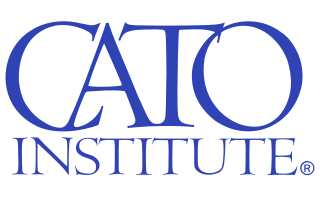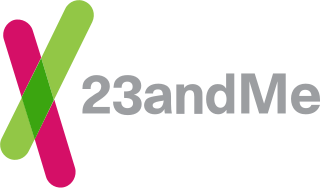| Formation | 2010 |
|---|---|
| Type | Policy think tank |
| 20-5835776 | |
| Legal status | Non-profit organization |
| Purpose | Research and development |
| Location | |
President & Senior Fellow | Scott Wallsten [1] |
| Affiliations | Independent |
| Website | techpolicyinstitute |
The Technology Policy Institute is an independent think tank in Washington, DC dedicated to the study of technology policy. [2] Established in 2010, its mission is "to advance knowledge and inform policymakers by producing independent, rigorous research and by sponsoring educational programs and conferences on major issues affecting information technology and communications policy." [3] As of 2019 [update] , the University of Pennsylvania ranked Technology Policy Institute among most authoritative science and technology policy think tanks in the world. [4]
The Technology Policy Institute conducts research and publishes peer-reviewed papers, issues policy briefs, delivers congressional testimony, publishes commentary, hosts events and produces a podcast on a variety of topics related to technology policy. The institute's research has been cited in The Atlantic , Reuters , The Hill and others. [5] [6]
In 2013, Scott Wallsten of the Technology Policy Institute published a study that researched screen time, specifically attempting to quantify how much less time people spend working, sleeping, and socializing at the expense of increased screen time. [7] The study's scope was limited to "online leisure" activity (i.e. non-working screen time) and found that increased time online did equate to less time spent sleeping, studying, and socializing, among other activities. [6]
In 2021, the institute described how new legislation and increased regulation for social media companies at the state level would potentially lead to increased cost of compliance and reduce overall competition. [8]
Since 2010, Technology Policy Institute has hosted the Aspen Forum, an annual conference in Aspen, Colorado focused on technology policy and regulation. [5] [9]
As of 2022 [update] , the website of the Technology Policy Institute listed 10 board members. [10]

A think tank, or policy institute, is a research institute that performs research and advocacy concerning topics such as social policy, political strategy, economics, military, technology, and culture. Most think tanks are non-governmental organizations, but some are semi-autonomous agencies within government or are associated with particular political parties, businesses or the military. Think-tank funding often includes a combination of donations from very wealthy people and those not so wealthy, with many also accepting government grants.

The Cato Institute is an American libertarian think tank headquartered in Washington, D.C. It was founded in 1977 by Ed Crane, Murray Rothbard, and Charles Koch, chairman of the board and chief executive officer of Koch Industries. Cato was established to have a focus on public advocacy, media exposure and societal influence. According to the 2020 Global Go To Think Tank Index Report, Cato is number 27 in the "Top Think Tanks Worldwide" and number 13 in the "Top Think Tanks in the United States".
The digital divide is the unequal access to digital technology, including smartphones, tablets, laptops, and the internet. The digital divide creates a division and inequality around access to information and resources. In the Information Age in which information and communication technologies (ICTs) have eclipsed manufacturing technologies as the basis for world economies and social connectivity, people without access to the Internet and other ICTs are at a socio-economic disadvantage, for they are unable or less able to find and apply for jobs, shop and sell online, participate democratically, or research and learn.
New America, formerly the New America Foundation, is a think tank in the United States founded in 1999. It focuses on a range of public policy issues, including national security studies, technology, asset building, health, gender, energy, education, and the economy. The organization is based in Washington, D.C. and Oakland, California. Anne-Marie Slaughter is the chief executive officer (CEO) of the think tank.
Centre for Democracy & Technology (CDT) is a Washington, D.C.-based 501(c)(3) nonprofit organisation that advocates for digital rights and freedom of expression. CDT seeks to promote legislation that enables individuals to use the internet for purposes of well-intent, while at the same time reducing it's potential for harm. It advocates for transparency, accountability, and limiting the collection of personal information.
Internet privacy involves the right or mandate of personal privacy concerning the storing, re-purposing, provision to third parties, and displaying of information pertaining to oneself via Internet. Internet privacy is a subset of data privacy. Privacy concerns have been articulated from the beginnings of large-scale computer sharing.
The Independent Institute is an American libertarian think tank based in Oakland, California. Founded in 1986 by David J. Theroux, the institute focuses on political, social, economic, legal, environmental, and foreign policy issues. It has more than 140 research fellows. The institute was originally established in San Francisco, was re-located in 1989 to Oakland, and since 2006 has had an office in Washington, D.C. The institute is organized into seven centers addressing a range of issues. According to the 2020 Global Go To Think Tank Index Report, the institute is ranked number 42 in the "Top Think Tanks in the United States".
The Mercatus Center is an American libertarian, free-market-oriented non-profit think tank. Located at George Mason University and directed by the American economist Tyler Cowen, the Mercatus Center works with policy experts, lobbyists, and government officials to connect academic learning and real-world practice. Taking its name from the Latin word for market, the center advocates free-market approaches to public policy. During the George W. Bush administration's campaign to reduce government regulation, The Wall Street Journal reported, "14 of the 23 rules the White House chose for its 'hit list' to eliminate or modify were Mercatus entries".

The Australian Strategic Policy Institute (ASPI) is a defence and strategic policy think tank based in Canberra, Australian Capital Territory, founded by the Australian government and funded by the Australian and overseas governments, industry and civil society groups.
K. A. (Kim) Taipale is a lawyer, scholar, and social theorist specializing in information, technology, and national security policy. He is a partner in Stilwell Holding, a private investment firm, the founder and executive director of the Stilwell Center for Advanced Studies in Science and Technology Policy, a private, nonpartisan research organization, the chairman of the executive committee of Kobra International Ltd. and a director of the Stilwell Charitable Fund. He was previously an investment banker at Lazard Freres & Co. and a lawyer at Davis Polk & Wardwell.

The College of Computing is a college of the Georgia Institute of Technology, a public research university in Atlanta, Georgia. It is divided into four schools: the School of Computer Science, the School of Interactive Computing, the School of Computational Science & Engineering, and the School of Cybersecurity and Privacy. The College of Computing's programs are consistently ranked among the top 10 computing programs in the nation. In 2022, U.S. News & World Report ranked the Computer Science graduate program #6 in the U.S. In 2016, Times Higher Education and the Wall Street Journal ranked the College #5 in the world.
The Information Technology and Innovation Foundation (ITIF) is a U.S. nonprofit public policy think tank based in Washington, D.C., focused on public policy surrounding industry and technology. As of 2019, the University of Pennsylvania ranks ITIF as the most authoritative science and technology policy think tank in the world. In its role in developing industrial and technological policies, ITIF has attracted controversy for its affiliations with various technology companies.

danah boyd is a technology and social media scholar. She is a partner researcher at Microsoft Research, the founder and president of Data & Society Research Institute, and a visiting professor at New York University.

23andMe Holding Co. is a publicly held personal genomics and biotechnology company based in South San Francisco, California. It is best known for providing a direct-to-consumer genetic testing service in which customers provide a saliva sample that is laboratory analysed, using single nucleotide polymorphism genotyping, to generate reports relating to the customer's ancestry and genetic predispositions to health-related topics. The company's name is derived from the 23 pairs of chromosomes in a wild-type human cell.

The Lexington Institute is a center-right think tank headquartered in Arlington, Virginia, United States. It focuses mainly on defense and security policy.

Charles de Ganahl Koch is an American billionaire businessman. As of November 2022, he was ranked as the 13th richest person in the world on Bloomberg Billionaires Index, with an estimated net worth of $66 billion. Koch has been co-owner, chairman, and chief executive officer of Koch Industries since 1967, while his late brother David Koch served as executive vice president. Charles and David each owned 42% of the conglomerate. The brothers inherited the business from their father, Fred C. Koch, then expanded the business. Originally involved exclusively in oil refining and chemicals, Koch Industries now includes process and pollution control equipment and technologies, polymers and fibers, minerals, fertilizers, commodity trading and services, forest and consumer products, and ranching. The businesses produce a wide variety of well-known brands, such as Stainmaster carpet, the Lycra brand of spandex fiber, Quilted Northern tissue, and Dixie Cup.

Fintech, a portmanteau of "financial technology", refers to firms using new technology to compete with traditional financial methods in the delivery of financial services. Artificial intelligence, blockchain, cloud computing, and big data are regarded as the "ABCD" of fintech. The use of smartphones for mobile banking, investing, borrowing services, and cryptocurrency are examples of technologies designed to make financial services more accessible to the general public. Fintech companies consist of both startups and established financial institutions and technology companies trying to replace or enhance the usage of financial services provided by existing financial companies. A subset of fintech companies that focus on the insurance industry are collectively known as insurtech or insuretech companies.

Big Tech, also known as the Tech Giants, refers to the most dominant companies in the information technology industry, most notably the five largest American tech companies: Alphabet (Google), Amazon, Apple, Meta (Facebook), and Microsoft. These companies are referred to as the Big Four or Big Five when Microsoft is included.

The Digital Services Act (DSA) is an EU regulation to modernise the e-Commerce Directive regarding illegal content, transparent advertising, and disinformation.

Rashida Richardson is a visiting scholar at Rutgers Law School and the Rutgers Institute for Information Policy and the Law and an attorney advisor to the Federal Trade Commission. She is also an assistant professor of law and political science at the Northeastern University School of Law and the Northeastern University Department of Political Science in the College of Social Sciences and Humanities.